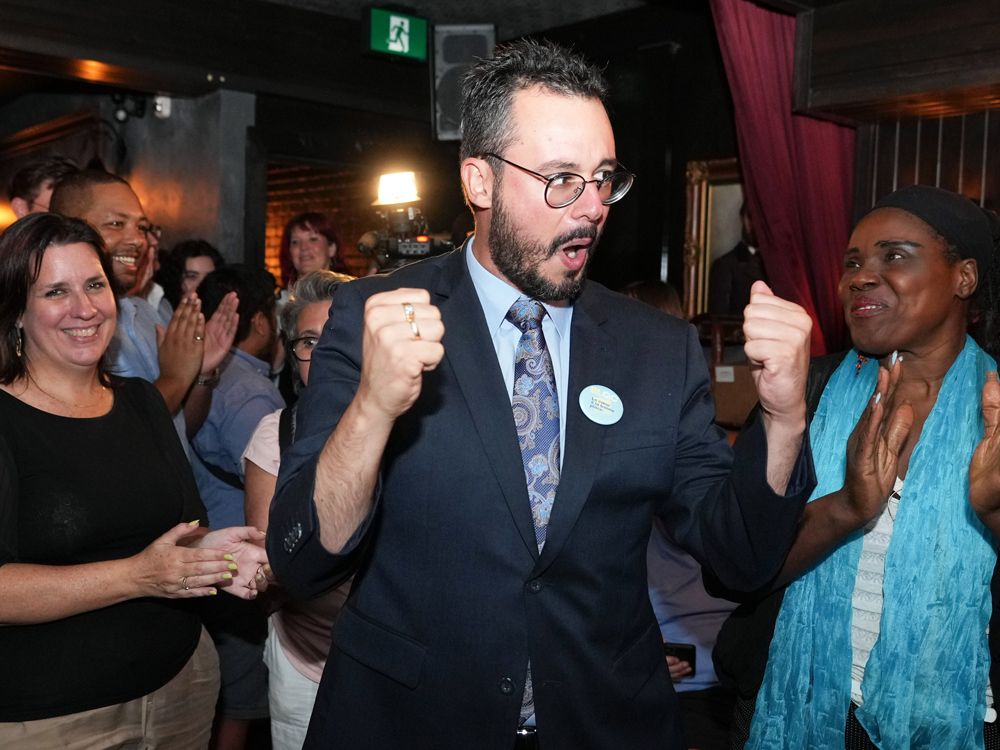
Bloc Québécois in Tight Three-Way Race in Montreal By-Election Amid NDP Victory in Winnipeg
The recent by-elections in Winnipeg and Montreal have highlighted key political dynamics across Canada, as the results showcased both party victories and the mounting pressures on political leaders. In Winnipeg’s Elmwood-Transcona riding, the New Democratic Party (NDP) successfully held its seat, with candidate Leila Dance securing 48.1% of the vote, narrowly defeating Conservative Colin Reynolds, who garnered 44%. This victory was crucial for the NDP, following the resignation of MP Daniel Blaikie. Dance's win was celebrated with emotional speeches, where she expressed her gratitude to her supporters and promised to represent them proudly in Ottawa.
Meanwhile, the by-election in Montreal’s LaSalle-Émard-Verdun riding saw a highly competitive three-way race between the NDP, Bloc Québécois, and the Liberals. With results trickling in late into the night, fewer than 500 votes separated the three contenders, keeping the race too close to call. Liberal candidate Laura Palestini and Bloc Québécois candidate Louis-Philippe Sauvé were neck and neck, each holding approximately 27.6% of the vote. NDP candidate Craig Sauvé followed closely at 25.9%, showing that all three parties were fiercely competing for the seat. Despite the uncertainty, Sauvé remained optimistic, suggesting the strong showing for the NDP in Montreal could signal a renewed strength for the party in Quebec ahead of future elections.
Also Read:- Scandal Rocks Jewish Chronicle: Columnists Resign Over Fabricated Gaza Reports
- Jim Harbaugh Updates on Justin Herbert’s Injury: X-rays Clear, Further Evaluations Expected
Both by-elections carried significant weight for their respective parties. The NDP had set high expectations in both ridings, hoping to solidify its stance as the progressive alternative to the Liberals and Conservatives, especially after Leader Jagmeet Singh’s recent decision to end the support deal with the Liberals. The win in Winnipeg was seen as a key victory, but the close race in Montreal emphasized the competitive nature of Quebec politics, with the Bloc Québécois presenting a significant challenge.
For the Liberals, the Montreal riding held particular importance. Historically represented by former prime minister Paul Martin, the loss or near-loss of this stronghold signals growing dissatisfaction with the party, reflecting broader national trends. Prime Minister Justin Trudeau, facing increasing pressure, had earlier stated that he is “not going anywhere,” regardless of the by-election results, yet a defeat in such a key Montreal riding would certainly sting for the party.
As the dust settles, the NDP’s victory in Winnipeg and the tight race in Montreal are significant indicators of Canada’s evolving political landscape. These by-elections reflect the increasing polarization and the stiff competition between parties, with housing, affordability, and other key issues driving voter decisions. While the Bloc Québécois continues to challenge federal parties in Quebec, and the Conservatives make inroads with working-class voters, the coming months will likely see more intense battles for influence, as party leaders try to capture the growing frustrations of Canadians.
Read More:

0 Comments